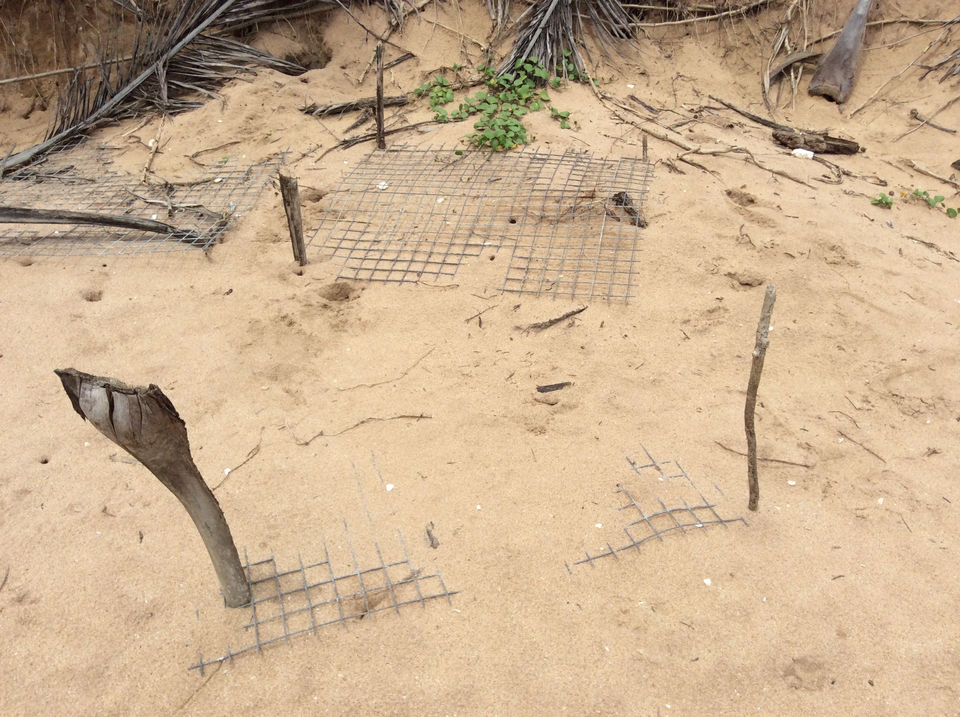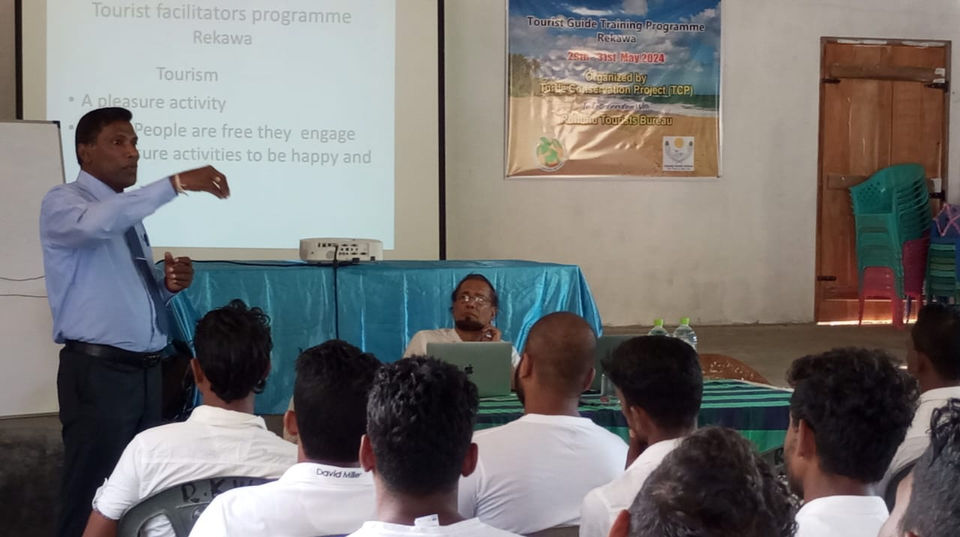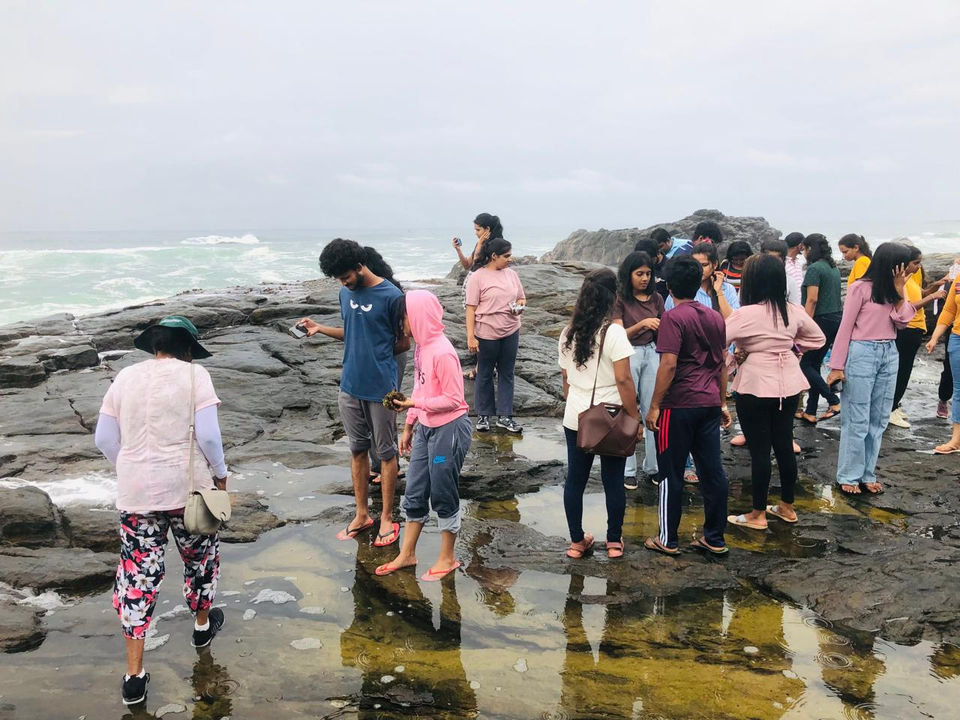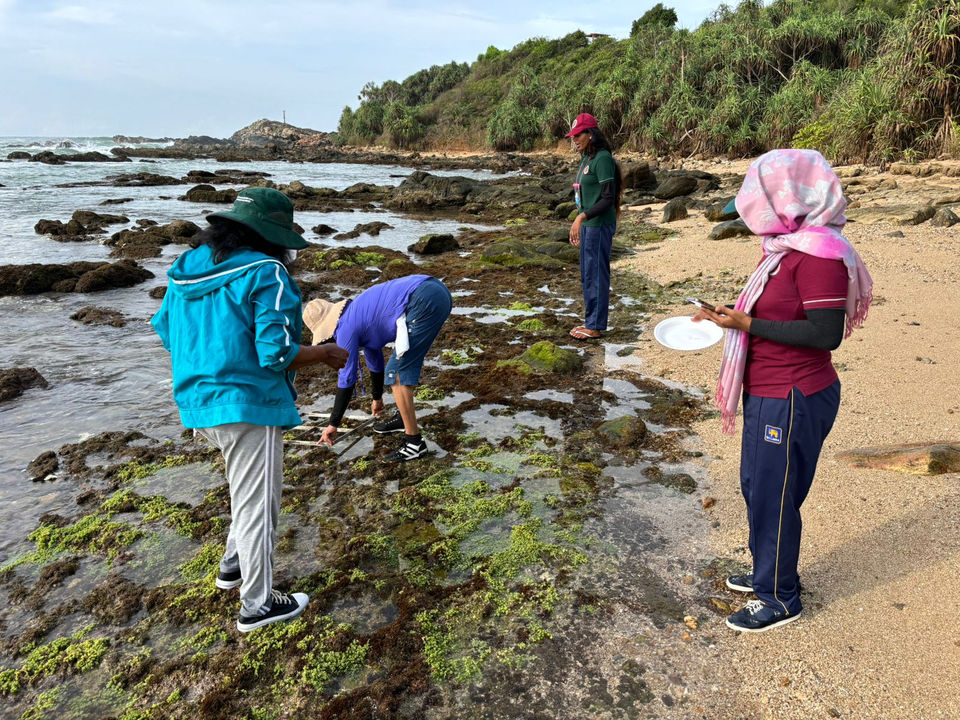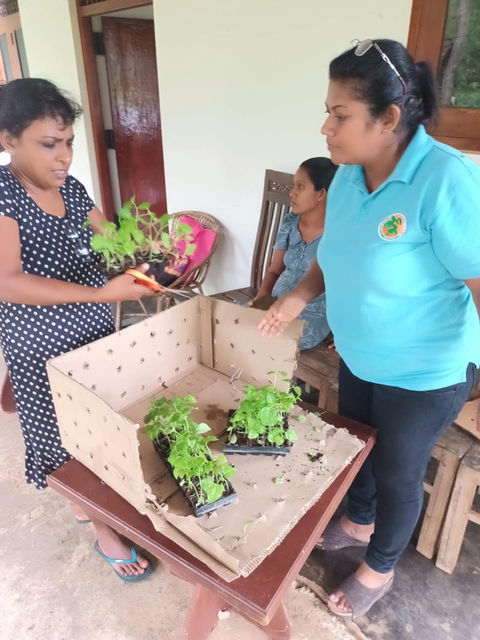ALTERNATIVE LIVELIHOOD DEVELOPMENT
One of the major challenges facing developing countries is the lack of alternative livelihood options for those who rely on vulnerable natural resources. Recognizing that sustainable turtle conservation cannot achieve its goals without addressing the needs and livelihoods of coastal communities dependent on these resources, the TCP has launched a series of programs to provide alternative income sources to community members in project areas.
A key goal of the TCP is to create alternative income-generating opportunities for people who depend on coastal resources while taking necessary steps to ensure the sustainable conservation of marine turtles and other vital coastal ecosystems. The TCP has implemented and continues to carry out the following programs throughout Sri Lanka.
WOMEN BATIK GROUP
The TCP formed women’s batik groups by selecting interested participants and providing them with training in batik production. This initiative enhanced their skills and enabled self-employment opportunities. The TCP also supplied equipment and materials, and assisted in securing local markets, occasionally purchasing products directly. Financial support was made available through revolving fund schemes managed by community-based organizations (CBOs).
WOMEN SEWING GROUP
The TCP selected 20–30 women interested in tailoring and provided a 6-month training program, along with sewing machines and materials. Top performers and CBO members received equipment. Participants earned a small monthly stipend and, upon completion, were able to use their skills for self-employment.
TURTLE NEST PROTECTORS
The TCP employed former egg collectors as nest protectors, training them to properly safeguard turtle nests. This provided them with stable income and encouraged community involvement in conservation. Rekawa employed 20 nest protectors and Kosgoda 15.
MANGROVE MAINTENANCE
The TCP established nurseries for mangroves and other coastal plants, employing community members to maintain them. Workers receive incentives while contributing to habitat restoration.
TOURIST GUIDES
The TCP trained residents as tourist guides, certifying them through the Sri Lanka Tourist Board. These guides lead tours for the "Turtle Night Watch" programs in Rekawa and Kosgoda, generating income through ecotourism.
RESEARCH ASSISTANTS
The TCP trained local community members in research and conservation techniques before employing them as research assistants. They collect data on nesting turtles and participate in daily and nightly beach patrols.
ORNAMENTAL FISH BREEDING
The TCP launched an ornamental fish breeding program, training community members in fish breeding and tank construction. The goal was to help participants access local and export markets, providing a sustainable source of income.
Home Gardens
The TCP launched an ornamental fish breeding program, training community members in fish breeding and tank construction. The goal was to help participants access local and export markets, providing a sustainable source of income.


















